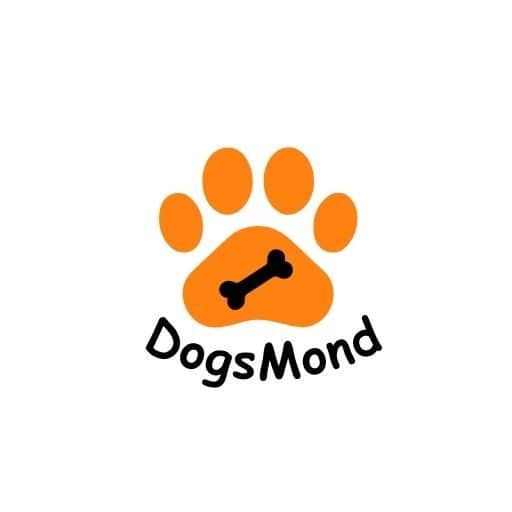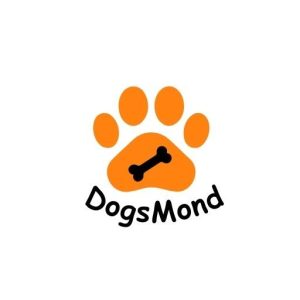It’s been a couple of decades since my association with Labradors began. During the early days at my shelter, deciding the proper diet for them was a hassle as I wasn’t clear about the nutrition and safety levels. One of the foods that made me really confused was cheese. If you’re also wondering, “Can Labradors eat cheese?” I have the perfect answer for you.
Labradors can eat cheese in moderation. It contains protein, calcium, and vitamins and is an excellent source of essential fatty acids. However, you should avoid giving your dog too much cheese as it is high in fat and lactose, which can lead to digestive issues or weight gain.
In this article, I’ll walk you through the dos and don’ts of feeding cheese to your Labrador. I’ll cover the benefits and risks of cheese, how to feed it to your dog, the best types of cheese to offer, and how to tell if your dog is having a bad reaction.
So, let’s dive in and learn more about this popular food item for dogs!

Can Labradors Eat Cheese?
Cheese is good for Labradors, but it is important to feed in moderation. Cheese can be a great training tool or occasional snack for your furry friend, but it is essential to keep in mind that some Labradors may be lactose intolerant or have allergies to certain types of cheese.
Lactose intolerance is common in dogs because they lack the enzyme necessary to digest lactose found in dairy products like cheese. Consuming cheese may lead to digestive issues such as bloating, diarrhea, or gas.
You should always monitor your dog’s reaction when introducing new foods, including cheese, to ensure they can tolerate it without adverse effects.
Some Labrador pet parents have also shared their concerns on a forum about high lactose intolerance and other digestive issues upon feeding cheese. Therefore, it is essential to be careful when feeding cheese to your furry friend.

If you want to feed your Labrador cheese, opt for low-fat cheese varieties. Cottage cheese is an excellent low-fat option, followed by soft goat and mozzarella cheese.
High-fat cheeses can lead to weight gain or digestive problems if consumed excessively. To balance flavor and safety, you might consider exploring cheeses with lower lactose content, such as aged Cheddar or Swiss cheese.
“If I need to give any of my dogs a tablet, a small piece of cheese is a great way to secrete it inside. Works perfectly every time!”
Here’s a table with some nutritional information on common cheese types that can be given to your Labrador:
| Cheese Type | Serving Size | Calories | Fat (g) | Lactose (g) |
|---|---|---|---|---|
| Cheddar | 1 oz | 114 | 9.3 | 0.1g |
| Swiss | 1 oz | 106 | 7.7 | 0.1g |
| Mozzarella | 1 oz | 71 | 4.5 | 0.7g |
| Cottage Cheese | 1/2 cup | 81 | 1.0 | 1.2g |
| Goat Cheese | 1 oz | 76 | 6.0 | 1.3g |
When feeding cheese to your Labrador Retriever, keep the portion size small and only offer it as a treat, not a staple in their diet. Pay attention to your dog’s reaction! It is always better to be on the safe side and choose healthy options over flavorful ones.
Benefits & Risks of Cheese For Labradors
It has become habitual for me to weigh the good and bad associated with any food I feed my Labradors. Cheese is yummy, but is it only for humans? Some dogs enjoy eating cheese and mixing it with other foods.
But is cheese safe? Let’s analyze the same by listing the benefits and risks in this section.
Benefits of Cheese for Labradors:
- Calcium: Cheese contains calcium, which helps promote strong bones and teeth for your dog.
- Protein: Cheese is a good source of protein for your Labrador, which is essential for maintaining muscle mass and overall health.
- Vitamins: Some cheese varieties are rich in essential vitamins like vitamin A, vitamin B12, and vitamin D that support various bodily functions in your Labrador.
- Fatty Acids: Certain types of cheese also provide a good source of fatty acids, which are vital for maintaining your dog’s skin and coat health.

Risks of Cheese for Labradors:
- Sodium: Cheese can be high in sodium, which may cause complications for your dog’s health, especially if they have existing heart or kidney issues. Ensure you choose low-sodium varieties if you’re giving your Labrador cheese.
- Fat Content: The high-fat content in some cheeses can lead to obesity if not given in moderation. To avoid health issues, it’s crucial to monitor your dog’s overall calorie consumption.
- Lactose Intolerance: Some Labradors may be lactose intolerant, leading to gastrointestinal issues when eating cheese. If you observe any negative effects, keep an eye on your dog’s response to cheese and visit your veterinarian.
- Blue Cheese: Don’t give your Labrador blue cheese, as the mold that makes the cheese blue can make them sick.
You should keep your Labrador’s overall diet in mind when deciding how much cheese to give them. While cheese can be a tasty treat, it should only be provided as part of a balanced diet.
“A strict no to cheese if your Labrador is already overweight or has pancreatis.”
How To Feed Cheese To Your Labrador
Feeding cheese to your Labrador Retriever can be a great way to reward them during training sessions, but it’s important not to overdo it. Overfeeding can lead to health issues.
Here are some tips on how to feed cheese to your Labrador:
- Cut small, bite-sized pieces or crumble the cheese into smaller tidbits and hand-feed it to them.
- Be cautious not to overfeed, and make sure to incorporate cheese into a balanced diet.
- If you’re feeding homemade food to your Lab, adding a couple of slices of cheese is a great idea any day!
When feeding cheese to your Labrador, it’s essential to keep in mind their age and the recommended quantity.
Use the table below as a guide:
| Age of Labrador | Amount of Cheese |
|---|---|
| 2-6 months | 1-2 small pieces |
| 6-12 months | 2-3 small pieces |
| 1-3 years | 3-4 small pieces |
| Over 3 years | 4-5 small pieces |
Remember, every dog is unique, and their cheese tolerance may differ based on individual characteristics. Always start with a lesser amount and gradually increase while closely monitoring your Labrador’s reaction.
When feeding your dog cheese, ensure it is fresh and clean. Avoid giving them cheese that has been sitting out for too long or has mold on it due to its toxicity. By following these tips, you can safely and effectively feed cheese to your Labrador as a treat during training sessions.
Happy treating!

Signs of an Adverse Reaction to Cheese
Not every food is safe for dogs! If your Labrador has consumed cheese and starts to display any of the following symptoms, they may be experiencing an adverse reaction:
- Vomiting
- Diarrhea
- Excessive itching
- Swelling of the face, lips, or tongue
- Seizures
- Difficulty breathing
I’ve observed some pet parents confused with their course of action when they spot the signs but are unaware of the remedy.
Here’s an action plan shared for every bad reaction sign:
| Symptom | Advised Course of Action | Veterinarian Required? |
|---|---|---|
| Vomiting | Withhold food and water for a few hours, then offer small amounts of water. Gradually reintroduce food with a bland diet (such as boiled chicken and rice). | Yes, if vomiting persists or is accompanied by other symptoms. |
| Diarrhea | Withhold food for 12-24 hours, then offer small amounts of a bland diet. | Yes, if diarrhea persists or is accompanied by other symptoms. |
| Excessive itching | Bathe the dog with a gentle, hypoallergenic shampoo. Check for fleas or other parasites. | Yes, if itching persists or is accompanied by other symptoms. |
| Swelling of the face, lips, or tongue | Seek veterinary care immediately. This could be a sign of an allergic reaction, which can be life-threatening. | Yes, seek veterinary care immediately. |
| Difficulty breathing | Seek veterinary care immediately. This could be a sign of an allergic reaction or other serious medical condition. | Yes, seek veterinary care immediately. |
| Seizures | Seek veterinary care immediately. Various underlying medical conditions can cause seizures and require prompt medical attention. | Yes, seek veterinary care immediately. |
Alternatives to Cheese For Labradors
If your Labrador Retriever is lactose intolerant or you want to vary their diet, there are plenty of tasty and nutritious alternatives to cheese. Here are some options to consider:
- Goats cheese: If your Labrador enjoys cheese but has trouble digesting it, try goats cheese. It has a lower lactose content and is easier for dogs to digest. Just make sure to offer it in small amounts.
- Rice: If your dog has a sensitive stomach, rice can be a good alternative carbohydrate source. It is simple and easily digestible, making it a great addition to their diet.
- Eggs: Cooked eggs are a great source of protein and essential nutrients, such as vitamins and minerals. You can mix them into your dog’s food or serve them as a treat.
- Yogurt: Choose plain, unsweetened yogurt as a healthy probiotic treat for your dog. Yogurt can help support their digestive system, but remember to keep the portion size small.
- Tuna: As a treat high in protein, occasionally serve canned tuna. Avoid adding salt or seasonings, and go for tuna in water rather than oil.
- Papaya: This refreshing fruit is a hydrating and low-calorie treat for your Labrador, especially on hot days. Remove the seeds and skin before giving it to your dog.
- Meat: Lean meats like chicken, turkey, or beef are wonderful alternatives to cheese since they are high in protein, which is crucial for a healthy Retriever. Ensure that the meats are cooked and unsalted.
If you’re looking for even more ideas, check out these other helpful guides:
Key Takeaways
- Cheese can be a good source of nutrition for Labradors, but it should be fed sparingly.
- Too much cheese can lead to digestive issues and weight gain in dogs.
- There are alternatives to cheese that can be fed to Labradors to provide them with a balanced diet.
FAQs
How much cheese can a Labrador eat?
A moderate serving of cheese, consisting of a few cubes or thin slices, can make for a delicious treat or a rewarding training incentive for your Labrador. However, be mindful of the portion size, as overindulging in cheese can cause digestive discomfort and other potential health concerns.
Is it safe for Labradors to eat processed cheese?
It’s best to steer clear of processed cheese, as it typically contains harmful additives and excessive amounts of sodium that can harm your Labrador’s health. Opt for natural, low-fat cheese options, which can help keep your furry friend healthy and content.
Related Articles You May Like:

